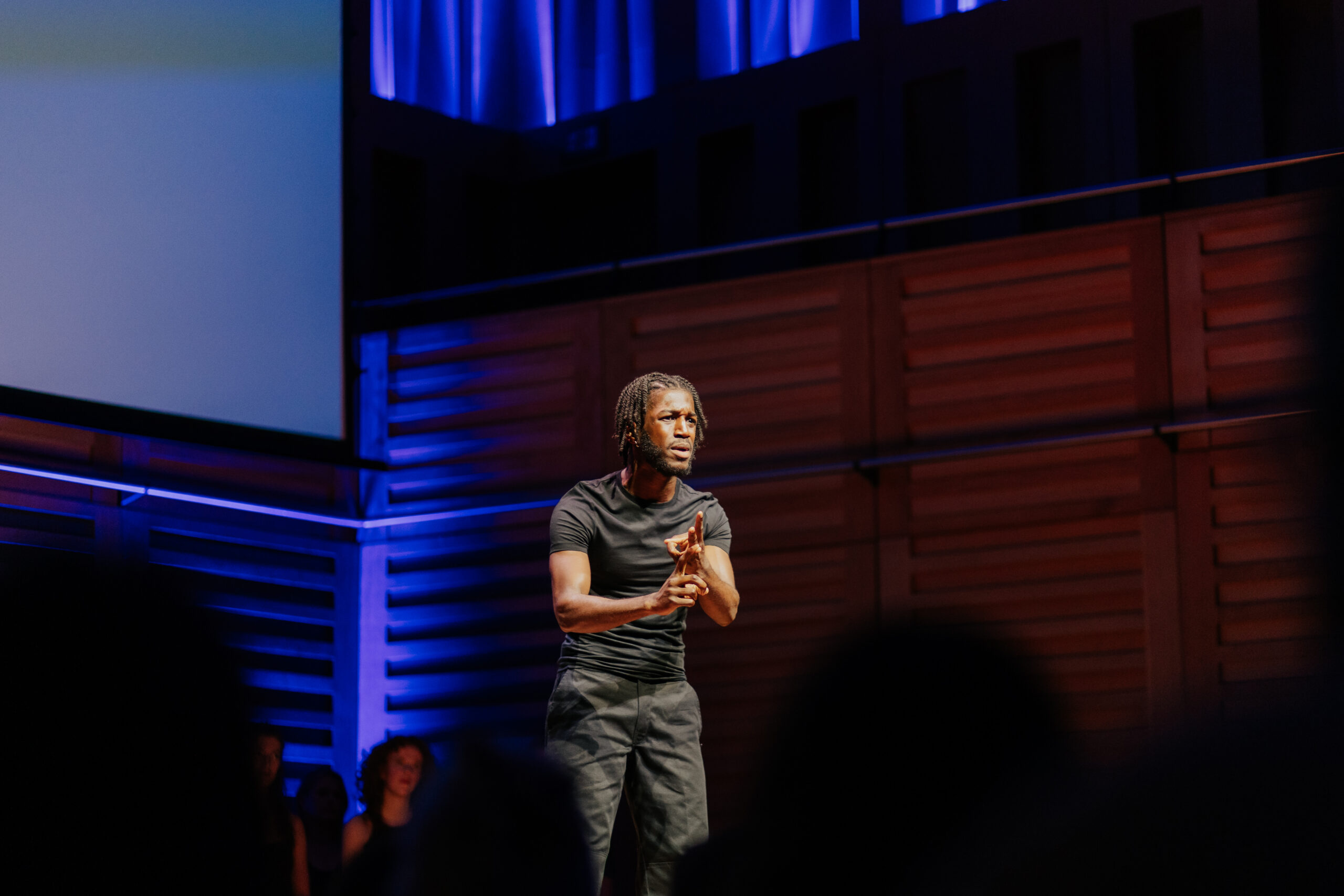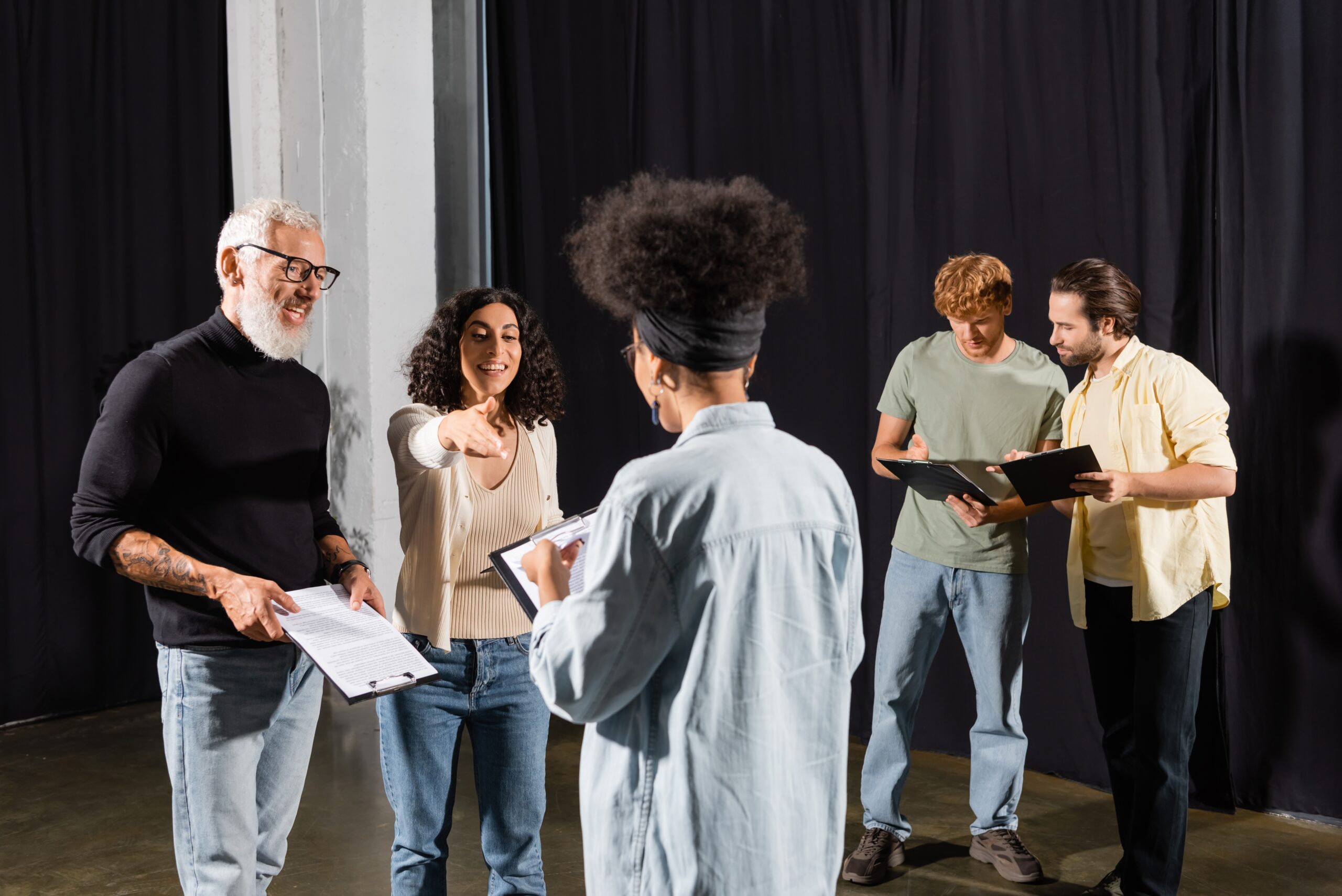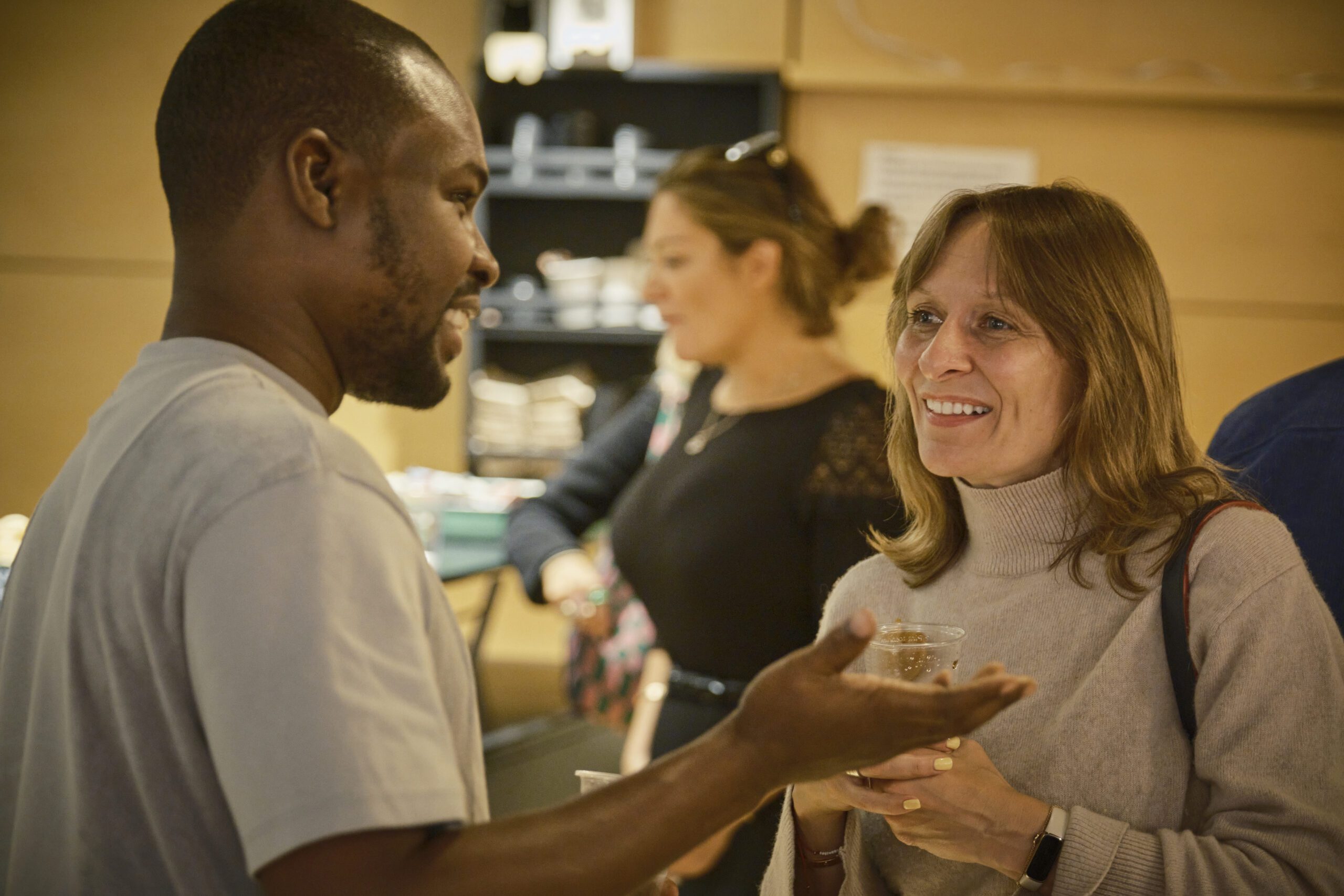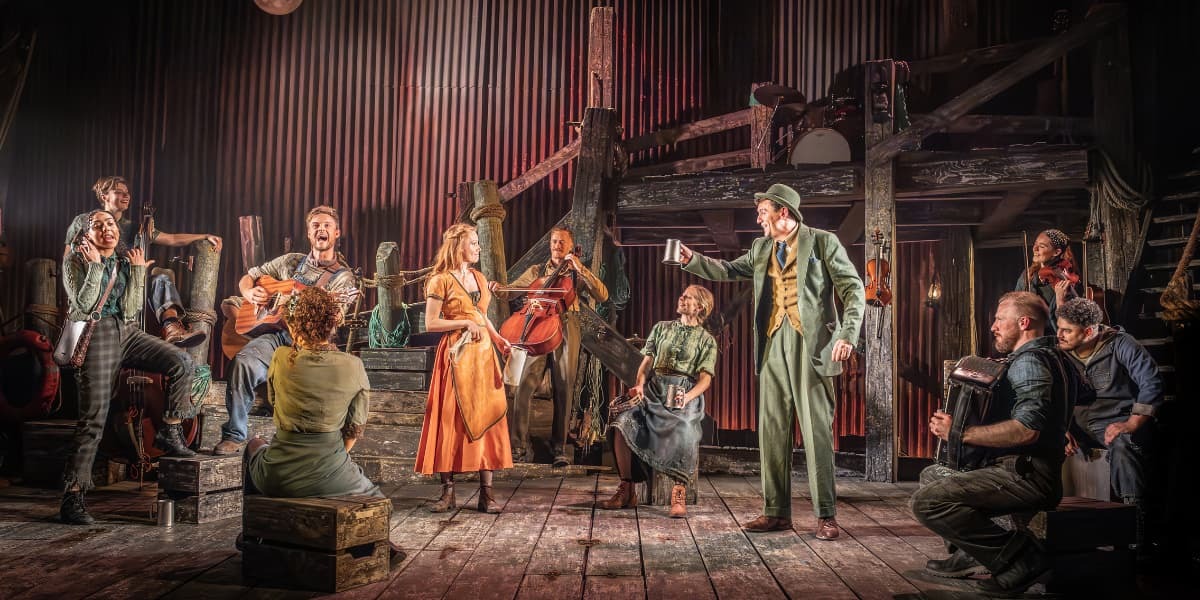Tips for finding your perfect audition monologue from how to begin your research, where to find monologues for free and what to look for.
Choosing a monologue for your audition shouldn’t be rushed or done on a whim. With so many monologues out there, you need to play an active role in narrowing down the choices with your own interests and preferences.
Our members often ask where to find monologues, so at the Spotlight Prize 2024, we spoke to the Spotlight Prize winners and finalists about their tips for finding monologues. Each participant at the Spotlight Prize had to perform a monologue for a stage and screen performance, so they’re experts at how and where to source them.
Here are their tips for finding monologues for auditions:
1. Search by Topic
Before you start your search, it can be a good idea to decide on a topic or theme for the monologue that you’re interested in so you feel connected to the piece.
Penny Morris: “I look up topics of plays that I’m interested in talking about, and also, as an artist, what I want to talk about. If you do a monologue that you are extremely interested in, you’re naturally going to gravitate and perform it well.”
(Performed ‘Glitter Punch’ by Lucy Burke)
2. Look at Work from Writers You Like
Similarly, looking through the work of writers you like is an excellent way to narrow down your search. Take a look at their body of work to see if there’s anything they’ve written that you might not necessarily know about but could work well as a monologue.
Gabrielle K. Appiah: “If there’s a writer that I’ve been reading, maybe what I’ve read doesn’t feel like it fits me, [but] they might have other really interesting things.”
(Performed ‘Wonderboy’ by Ross Willis)
Jessica Oppong: “I’ll find a writer and see the other pieces of her work. Use writers as a reference to the styles of work that you like.”
(Performed ‘Chewing Gum Dreams’ by Michaela Coel)
Scott Bowden: “I find one of the playwrights I know, look him up, go through the plays, and just go through until I find a big chunk and read it. If it’s not good enough, I’ll go to another play.”
(Performed ‘The Man’ by James Graham)
Dua Roberts: “I’m lucky to be from [Iceland], so I can just sneak into screenwriter’s DMs to be like, ‘Hey, do you have something for me?’”
(Performed ‘Seven Fairy Tales of Shame’ by Tyrfingur Tyrfingsson)
3. Browse Bookshops and Libraries
Bookshops and libraries usually have plenty of plays in stock and allow you to read the material in depth to better understand whether the monologue is right for you.
Callum Alexander-Smith: “I’m from Glasgow, so I just go into the Royal Conservatoire of Scotland library and have a look. Flip through other libraries and things like that. It sounds very retro and old-school, but it does actually work. And Waterstones as well. Go to Waterstones and read something from the drama section there.”
(Performed ‘Holes’ by Tom Basden)
Niamh-Ella McCann: “I go to the bookstore and I sit on the floor, and I just read everything for hours. Monologue books, plays. I just go through all of it and find what speaks to me.”
(Performed ‘Sea Creatures’ by Cordelia Lynn)
4. Watch and Read Plays
It’s vital to keep exposing yourself to new work as an actor. When you go to see new plays or read new scripts, keep an eye out for any scenes that might work as a monologue for you.
Trudy Akobeng: “Going to watch plays and then just remembering, “Oh, I liked that,” and just noting that and going to find the scripts for yourselves.”
(Performed ‘Typical Girls’ by Morgan Lloyd Malcolm)
Emma Symmonds: “Read lots of plays or go see plays, and be like, ‘Oh, that really stood out to me. I maybe should be looking at that.’”
(Performed ‘Anatomy of a Suicide’ by Alice Birch)
Bethany Wooding: “Try and go see stuff, even if it’s just going to see something for a couple of quid somewhere local because you’ll find the things that you want to do.”
(Performed ‘Cancer Time’ by Gary Owen)
5. Use Drama Online
If you’re a drama student, you should have access to Drama Online’s extensive library of plays, scripts and other work. Even if you’re not a drama school student, you can still search the library for plays and monologues using keywords, gender and word count.
You won’t be able to read the full work online without a subscription, but you’ll still be able to find plays, see their summaries and the name of their writer and use this information as a starting point to do more research or find the play in a bookshop or library to read from.
6. Look at Online Resources
The internet is full of useful information, and various platforms like Scribd can assist you in your search.
Zannie Benfield: “I like Scribd – that’s an online library. Normally, if I’ve seen a play that I really enjoyed, I’ll then look at the playwright’s other plays and have a shift through.”
(Performed ‘(BLANK)’ by Alice Birch)
Alfanso May: “Online. That’s where I tend to find most good pieces. Go online and just search and be very specific with what you’re searching.”
(Performed ‘For Black Boys Who Have Considered Suicide When the Hue Gets Too Heavy’ by Ryan Calais Cameron)
Tsen Day-Beaver: “I go through the internet and find pieces from shows that I’ve really enjoyed and pieces that really fit me as a person.”
(Performed ‘Linda’ by Penelope Skinner)
7. Look for Social Media Recommendations
Social media can also be useful for interacting with other performers and seeing their recommendations for great plays and monologues.
Alyssa Thabisile Sibanda: “Sometimes [I search] YouTube. Some people have a collection of monologues they do, so that’s quite helpful.”
(Performed ‘Many Moons’ by Alice Birch)
Katie Shelley: “I’ve found a lot on social media from other actors, other professionals. It’s lovely to see other people’s opinions. And I’ve joined every forum possible on Facebook.”
(Performed ‘Revolt. She Said. Revolt Again.’ by Alice Birch)
8. Use Spotify’s Recommendations System
If you play a song on Spotify, it has a clever recommendation system that will share other songs similar to the one you’re listening to. It’s a great way of discovering new work that may feature a monologue that’s just right for your next audition.
Lara Dailey: “On Spotify, if you like a song, you can go to the radio of the song and it will play similar pieces or pieces by the same composers, and usually I end up finding completely new shows that I’ve never even heard of before because of that and it’s great. It’s really great.”
(Performed ‘Stupid With Love’ from ‘Mean Girls’ by Tina Fey, Nell Benjamin, Jeff Richmond (composer))
If you’re unable to find one that works for you, then read our tips on how to write your own monologue.
Read tips on how to choose a monologue that’s right for you and find more suggestions about where to find monologues.



















